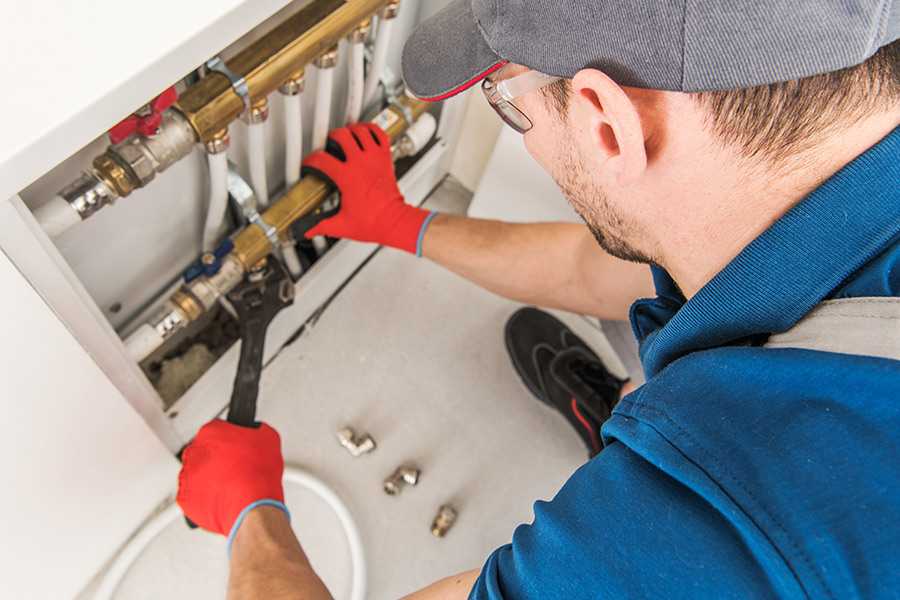Handling the Usual Hot Water Heater Emergency Challenges
Handling the Usual Hot Water Heater Emergency Challenges
Blog Article
How do you really feel in relation to Is Your Water Heater Leaking??

A hot water heater is just one of the most crucial standard appliances that can be found in a house. With hot water heater, you do not require to go through the stress of heating water manually every single time there is a demand to wash, wash, or the recipes. However, there is constantly an opportunity that your hot water heater would certainly break down just like many mechanical devices.
It is very important to keep in mind any type of little malfunction and also tackle it rapidly prior to things leave hand. Most times, your water heater starts to malfunction when there is an accumulation of debris as a result of continuous use. As a preventative measure, periodic flushing of your hot water heater is advised to prevent debris build-up as well as prevent functional failing.
Usual hot water heater emergencies and also how to manage them
Dripping water heater storage tank.
In this situation, you must transform off your water heating system, allow it to cool down, as well as very carefully look for the source of the issue. At times, all you need to do is to tighten up a few screws or pipeline connections in instances of minor leakages. If this does not work and also the leakage continues, you might require to employ the solutions of a service technician for an appropriate replacement.
Fluctuating water temperature.
Your water heater can start generating water of different temperature levels typically ice cool or scalding warm. There might be a requirement to replace either the thermostat or the home heating unit of your water heating system.
Inadequate hot water
Handling an inadequate supply of hot water can be irritating. It might be that the water heater can't support the warm water demand for your apartment. To take care of this problem, you might try to readjust your heater's temperature dial and wait on a couple of mins. You can ask for the assistance of an expert plumber if the problem persists. You might upgrade your water heater to one with a larger ability.
Tarnished or stinky water
When this occurs, you require to know if the issue is from the container or the water source. If there is no amusing smell when you run cold water, after that you are certain that it is your water heater that is damaged. The stinky water can be triggered by corrosion or the accumulation of germs or sediments in the water heating system container.
Final thought
Some homeowners overlook little warning and also minor faults in their hot water heater device. This just results in further damages and a feasible total failure of your appliance. You need to deal with your hot water heater mistakes as soon as they come up to avoid more expenditures and unneeded emergency difficulties.
With water heaters, you do not need to go through the anxiety of home heating water by hand every time there is a need to take a bath, do the washing, or the dishes. Your water heating system might start producing water of different temperature levels typically ice hot or cold warm. It may be that the water heating system can't support the hot water need for your home. If there is no amusing smell when you run cool water, then you are particular that it is your water heating unit that is faulty. The odiferous water can be triggered by corrosion or the accumulation of bacteria or debris in the water heating system storage tank.
Common Water Heater Issues and What You Should Do
What Type of Water Heater Do You Have?
Before we begin it’s first important that you identify the type of water heater you have on your property. There are two main types of water heaters out there: conventional and high efficiency.
Both of these types of products typically use either gas or electricity to heat power. There are also solar water heaters that use a thermal collector on the roof or yard to heat the water.
While these models are not as common, they can cut heating costs in half. In this article, we will focus on conventional and high efficiency.
How Do My Electric and Gas Water Heater Work?
Though they look similar, electric and gas water heaters work very differently. It’s important to know their basic function because often problems can be specific to the heating source.
In the electric model, a thermostat on the side of the machine detects the temperature of the water in the tank. When the temperature needs to rise electricity flows to a heating element suspended in the water.
Gas models also use a thermostat device — typically with a mercury sensor at the tip and an additional sensor called a thermocouple. The thermocouple detects whether the pilot light is on and controls the flow of gas.
When the thermostat drops below the appropriate level gas is released which becomes ignited by the pilot light. The flame heats the bottom of the water tank which causes hot water to rise and cold water to drop.
This natural circulation continues until the water reaches the desired temperature. Then, the thermostat triggers the gas control valve to shut off the flow of gas.
What Are the Most Common Issues and How Do You Fix Them?
https://happyhiller.com/blog/common-water-heater-issues-and-what-you-should-do/

I was made aware of that article about Is Your Water Heater Leaking? through an acquaintance on another domain. You should take the opportunity to distribute this page if you appreciated it. I am grateful for your time. Kindly check up our blog back soon.
Get Your Estimate Now Report this page